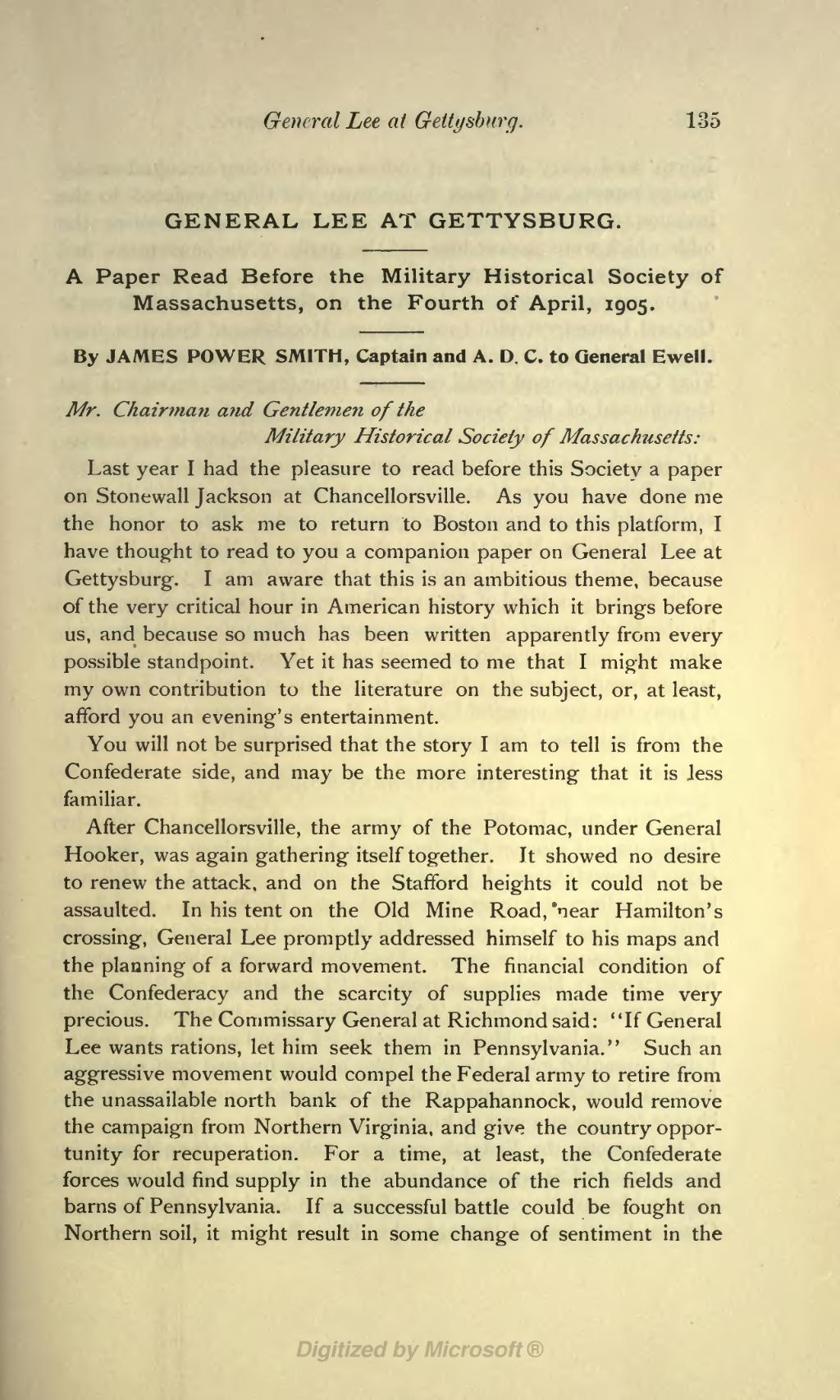Genera! Lee at Gettysburg. 185
GENERAL LEE AT GETTYSBURG.
A Paper Read Before the Military Historical Society of Massachusetts, on the Fourth of April, 1905.
By JAMES POWER SMITH, Captain and A. D. C. to General Ewell.
Mr. Chairman and Gentlemen of the
Military Historical Society of Massachusetts:
Last year I had the pleasure to read before this Society a paper on Stonewall Jackson at Chancellorsville. As you have done me the honor to ask me to return to Boston and to this platform, I have thought to read to you a companion paper on General Lee at Gettysburg. I am aware that this is an ambitious theme, because of the very critical hour in American history which it brings before us, and because so much has been written apparently from every possible standpoint. Yet it has seemed to me that I might make my own contribution to the literature on the subject, or, at least, afford you an evening's entertainment.
You will not be surprised that the story I am to tell is from the Confederate side, and may be the more interesting that it is Jess familiar.
After Chancellorsville, the army of the Potomac, under General Hooker, was again gathering itself together. It showed no desire to renew the attack, and on the Stafford heights it could not be assaulted. In his tent on the Old Mine Road, 'near Hamilton's crossing, General Lee promptly addressed himself to his maps and the planning of a forward movement. The financial condition of the Confederacy and the scarcity of supplies made time very precious. The Commissary General at Richmond said: "If General Lee wants rations, let him seek them in Pennsylvania." Such an aggressive movement would compel the Federal army to retire from the unassailable north bank of the Rappahannock, would remove the campaign from Northern Virginia, and give the country oppor- tunity for recuperation. For a time, at least, the Confederate forces would find supply in the abundance of the rich fields and barns of Pennsylvania. If a successful battle could be fought on Northern soil, it might result in some change of sentiment in the
